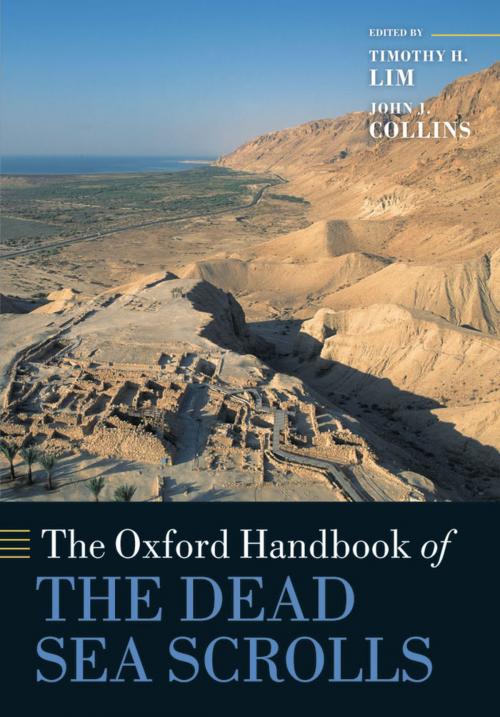The Oxford Handbook of the Dead Sea Scrolls
Nonfiction, Religion & Spirituality, Reference, Antiquities & Archaeology, History| Author: | ISBN: | 9780191502620 | |
| Publisher: | OUP Oxford | Publication: | October 28, 2010 |
| Imprint: | OUP Oxford | Language: | English |
| Author: | |
| ISBN: | 9780191502620 |
| Publisher: | OUP Oxford |
| Publication: | October 28, 2010 |
| Imprint: | OUP Oxford |
| Language: | English |
In 1946 the first of the Dead Sea Scroll discoveries was made near the site of Qumran, at the northern end of the Dead Sea. Despite the much publicized delays in the publication and editing of the Scrolls, practically all of them had been made public by the time of the fiftieth anniversary of the first discovery. That occasion was marked by a spate of major publications that attempted to sum up the state of scholarship at the end of the twentieth century, including The Encyclopedia of the Dead Sea Scrolls (OUP 2000). These publications produced an authoritative synthesis to which the majority of scholars in the field subscribed, granted disagreements in detail. A decade or so later, The Oxford Handbook of the Dead Sea Scrolls has a different objective and character. It seeks to probe the main disputed issues in the study of the Scrolls. Lively debate continues over the archaeology and history of the site, the nature and identity of the sect, and its relation to the broader world of Second Temple Judaism and to later Jewish and Christian tradition. It is the Handbook's intention here to reflect on diverse opinions and viewpoints, highlight the points of disagreement, and point to promising directions for future research.
In 1946 the first of the Dead Sea Scroll discoveries was made near the site of Qumran, at the northern end of the Dead Sea. Despite the much publicized delays in the publication and editing of the Scrolls, practically all of them had been made public by the time of the fiftieth anniversary of the first discovery. That occasion was marked by a spate of major publications that attempted to sum up the state of scholarship at the end of the twentieth century, including The Encyclopedia of the Dead Sea Scrolls (OUP 2000). These publications produced an authoritative synthesis to which the majority of scholars in the field subscribed, granted disagreements in detail. A decade or so later, The Oxford Handbook of the Dead Sea Scrolls has a different objective and character. It seeks to probe the main disputed issues in the study of the Scrolls. Lively debate continues over the archaeology and history of the site, the nature and identity of the sect, and its relation to the broader world of Second Temple Judaism and to later Jewish and Christian tradition. It is the Handbook's intention here to reflect on diverse opinions and viewpoints, highlight the points of disagreement, and point to promising directions for future research.















